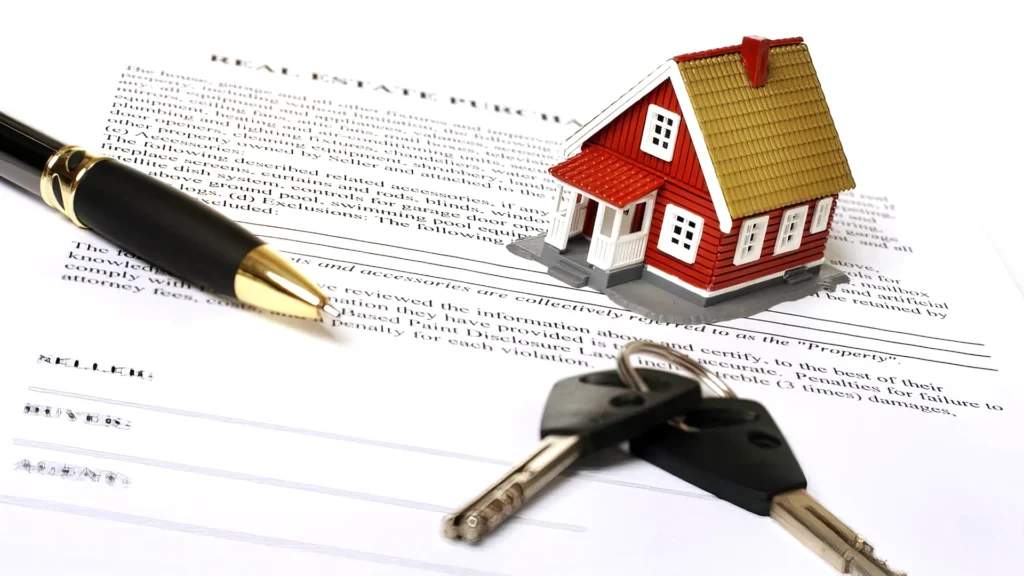Navigating a house sale is a complex process, with both buyers and sellers often investing significant time, energy, and money into the transaction. But sometimes, circumstances change, and the question arises: Can you pull out of a house sale?
Whether you’re a buyer or seller considering pulling out of a deal, it’s essential to understand the steps involved, the implications, and your legal standing. In this guide, we’ll cover everything you need to know about pulling out of a house sale, whether you’re cancelling an offer, rethinking a decision before contracts are exchanged, or facing last-minute hurdles.
Can You Pull Out of a House Sale?
In the UK, the house sale process is broken into two primary stages: pre-exchange and post-exchange. Until the exchange of contracts (when both parties sign binding agreements), either party can legally pull out without severe financial penalties.
Here’s a closer look at the legal framework and your rights at different stages.
Legal Framework of House Sales in the UK
- Before Exchange of Contracts: Until contracts are exchanged, both the buyer and seller can legally pull out of the sale. This is why many professionals consider the time before exchange to be a “safe zone” for re-evaluating decisions. If you decide to pull out now, there are usually minimal legal repercussions. However, you may still lose any upfront costs you’ve already paid, such as surveys, mortgage arrangement fees, and legal fees.
- After Exchange of Contracts: Once the exchange of contracts happens, the sale becomes legally binding for both parties. At this stage, pulling out can lead to significant financial penalties. The party that breaks the agreement is typically required to cover the other party’s costs, and in some cases, you may lose your deposit or face a claim for breach of contract. In other words, withdrawing after exchange can be both costly and legally complex.
Common Reasons for Pulling Out of a House Sale
There are many reasons why buyers and sellers consider backing out before exchange:
- Personal Circumstances: Life events such as job relocations, family needs, or personal changes can affect your readiness or ability to proceed.
- Financial Difficulties: Changes in finances, such as job loss or a shift in the economy, may mean you can no longer afford the transaction.
- Chain Breaks: In a property chain, any party dropping out can impact the entire chain, forcing others to reconsider or delay their plans.
- Survey Results: For buyers, a property survey might reveal significant issues that affect the property’s value or liveability.
Whatever the reason, it’s always best to act quickly and communicate clearly with the other party to minimise disruption.
Cancelling an Offer on a House
If you’ve made an offer on a property but have since reconsidered, it’s essential to cancel the offer correctly to keep things smooth and professional.
Steps to Take When Cancelling an Offer:
- Inform the Seller or Agent Promptly: Notify the seller or the estate agent as soon as you decide not to proceed. Delaying could inconvenience the seller, and a prompt response gives them a chance to relist the property without too much delay.
- Be Honest and Transparent: Explain the reason for your decision. Estate agents and sellers appreciate transparency, as it allows them to understand if there was something specific that put you off or if the issue was out of their control.
- Maintain Good Relationships: While withdrawing from an offer may feel awkward, maintaining a professional attitude is crucial, especially if you plan to buy in the same area later on. Estate agents, in particular, are more likely to view you favourably in the future if you handled a cancellation respectfully
Impact on Future Transactions
Backing out of an offer may impact how seriously agents or sellers view you in future transactions. If you pull out frequently or with little notice, you may gain a reputation as an unreliable buyer, which could affect your ability to secure properties in competitive markets.
What Happens When a House Sale Falls Through at the Last Minute?
It’s unfortunate, but sometimes, house sales fall apart at the last minute. For both buyers and sellers, it’s crucial to understand the possible causes, available options, and the steps you can take.
Common Reasons for Last-Minute Cancellations
- Financing Issues: Buyers may encounter unexpected issues with mortgage approval, causing delays or cancellations.
- Survey or Valuation Problems: A property’s valuation may not meet expectations, or a survey may reveal major structural issues, prompting buyers to back out.
- Breaks in the Chain: If one property in a chain transaction fails to complete, it can disrupt every linked transaction.
- Change in Circumstances: Either party may experience personal issues, job relocations, or family concerns, making it impossible to continue.
Options Available to Buyers and Sellers
- For Sellers: If your buyer pulls out, you have a few options. You can re-list the property and pursue new buyers, consider accepting a lower offer if time is a priority, or work with a quick-sale property buying company like Zapperty for a streamlined sale. Some sellers prefer cash buyers or companies that can ensure a swift process to avoid repeat disappointments. If you’re selling a house after bankruptcy, these options can be especially useful as you navigate the complexities of the sale and financial considerations.
- For Buyers: If you’re the buyer facing challenges, especially financial ones, you can either try to renegotiate with the seller if possible, seek a short-term solution, or consider alternative properties if your circumstances are likely to improve soon.
Legal and Financial Implications of a Failed Sale
A last-minute collapse can bring unexpected costs for both parties, including lost deposits, additional legal fees, and non-refundable expenses like surveys or legal work. It’s essential to understand the documentation involved in the sale process, such as the Memorandum of Sale, which outlines the agreed terms. This can help clarify your position if the sale falls through.
Conclusion
Pulling out of a house sale is a serious decision that should not be taken lightly. Understanding the legal stages, implications, and proper communication channels can help you manage the process smoothly. While you have more flexibility before the exchange of contracts, the stakes rise significantly after this stage.
If you’re facing a failed sale or considering a way to navigate a quick sale, reaching out to professionals who specialise in quick, hassle-free transactions, like Zapperty, can provide valuable support. Have your house sale fallen through? Contact Zapperty to sell your property quickly and with ease, without the stress of traditional listings.






